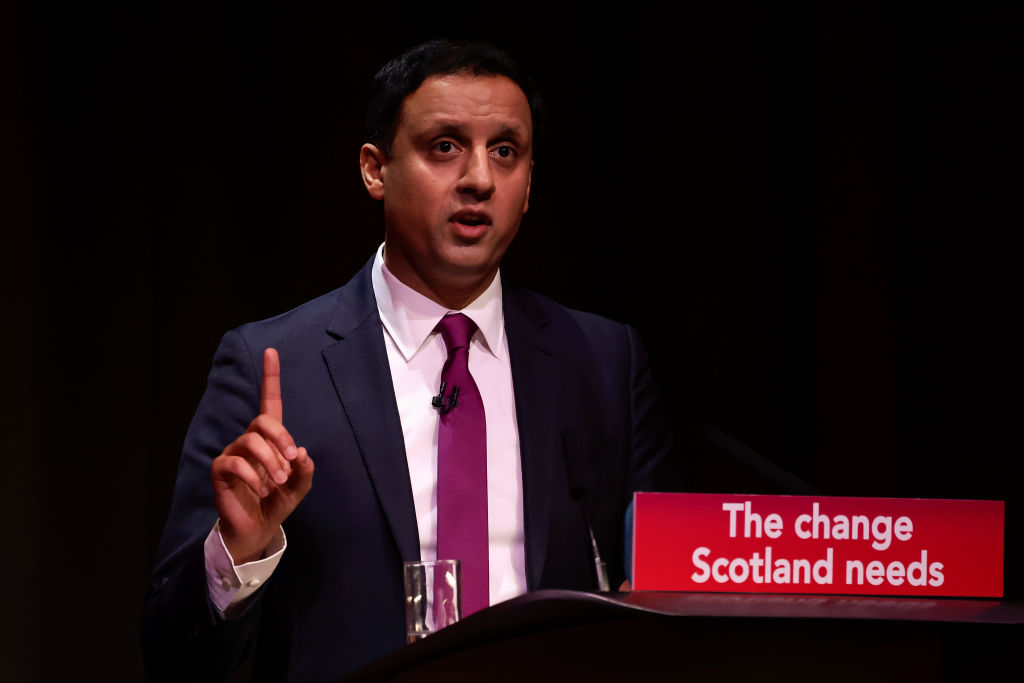Humza Yousaf is not a leader with troubles to seek. In the three weeks since his election as First Minister, the SNP has been rocked by a series of arrests and accusations of mismanagement. Meanwhile, the Scottish Nationalists’ poll ratings have continued to slide as Yousaf’s attempts to regain the initiative have inevitably been overshadowed by more negative headlines about his party, government, or both. Rather than a honeymoon, Yousaf has so far endured a holiday from hell.
Arguably his most damaging misstep is his lurch to the left on policy. Under the influence of his political partners, the Scottish Green party, Yousaf is determined to squeeze an ever-shrinking tax base while paying mere lip service to economic growth. As he outlined in a speech to the Scottish Parliament on Tuesday, Yousaf intends to be ‘bolder’ on taxation and redistribution of wealth – despite Scotland already being the highest taxed part of the UK. The exact form this ‘bold’ action will take has yet to be outlined, but Yousaf has already indicated his willingness to lower the higher rate threshold to £40,000 and introduce a new 44 per cent rate on those earning more than £75,000 a year. At the same time, Yousaf’s statement offered warm words but little succour to Scotland’s weary business community, other than to dump or delay some of his predecessor’s more encumbering regulations, such as the deposit return scheme. Rather than tax and spend, Yousaf’s mantra is increasingly tax and mismanage.
This represents a significant change of tack for the SNP, which – despite the radicalism of its central premise – has never been a party in favour of sweeping social change. While Alex Salmond and Nicola Sturgeon enjoyed grandstanding about social justice and equality, they also sought to support business and economic growth. Both former first ministers recognised that the outcome of an election in Scotland, as elsewhere in the UK, is determined by who controls the centre ground.
Yousaf’s main rival for the top job, Kate Forbes, also understood the importance of this principle. During the leadership campaign, Forbes’ message had social justice at its core, but she was also at pains to recognise that objective was only achievable with the cooperation of business and, crucially, a strong economy. She was therefore an unapologetic advocate of policies to raise Scotland’s pitiful economic growth rate – predicted to average just 1.3 per cent a year between 2020 and 2035 – and, while a firm believer in public services, hinted she would not shy away from reform either. That there is huge appetite for this platform (essentially New Labour wrapped in a Saltire) is best evidenced by Forbes’ popularity among the general public during and since the leadership election, despite the well-publicised controversy around her views on equal marriage.
By marrying its commitment to social justice with a definitively pro-growth agenda, Scottish Labour can become the party of business in Scotland once again.
There is now an opportunity for the opposition to pick up Forbes’ popular agenda as they move to occupy the political centre ground that is being increasingly vacated by Yousaf. While the Scottish Conservative party might hope to capture some of the SNP’s dwindling support among the business community, it is Scottish Labour that has the most to gain.
By marrying its commitment to social justice with a definitively pro-growth agenda, Scottish Labour can become the party of business in Scotland once again, solidifying and building on its increasingly buoyant position in the polls in the process. To do so, it will need to develop a tax regime that not only adequately funds public services, but also ensures Scotland is a more competitive and attractive place to invest. Equally, it will need to support public sector reform alongside public sector spending and shake its commitment to regressive universal benefits, such as free prescriptions and tuition, instead targeting them at those most in need and therefore more effective and sustainable in the long term. For his part, leader Anas Sarwar will need to stop pandering to trade unions and other vested interests – as he did recently at the Scottish Trades Union Congress – and instead show he can lead in the interests of all Scotland.
This will not be easy for a party that is still traumatised by the SNP taunts of ‘Red Tory’ that emerged after the 2014 independence referendum. It will require a heavy dose of courage from party members and politicians – as well as some firm leadership from Sarwar – but it is a vital process if the party is to regain credibility and be serious about winning power at the 2026 Scottish Parliament election. Yousaf and the SNP have vacated the centre ground in Scotland: now it is down to the Labour party to occupy it.






Comments